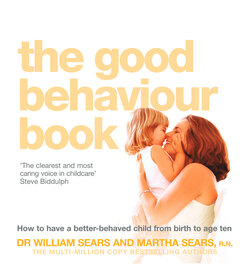Читать книгу The Good Behaviour Book - Марта Сирс - Страница 31
6. Become a Facilitator
ОглавлениеAt each stage of development, a child needs significant people who care about him and whom he cares about. These people act as facilitators, helping the child learn how to conduct himself in the world. A facilitator is like a consultant, a trusted authority figure who provides emotional refuelling to the child, a person to lean on who helps the child both develop his skills and take advantage of the resources around him with a view toward becoming self-sufficient. The facilitators don’t tell the child what to do; they help the child learn what to do. They don’t give commands; instead they take cues from the child and weave their wishes into the child’s wants. The child says, “I do it myself”; the facilitator says, “Yes, you can!” The facilitator watches for teachable moments and takes advantage of them. A wise disciplinarian in my practice describes her role as facilitator: “My job is to help my child glean from life’s experiences lessons he might not otherwise glean for himself.”
Babies need facilitators.
You have been functioning as a facilitator ever since the moment of birth. You positioned your baby at the breast to make it easier for her to feed. You held the chair steady to make it safer for the beginning cruiser to keep his balance. You arranged child-sized furniture, utensils, and cups to make it easier for your child to have a snack. A facilitator structures the environment so a child doesn’t waste energy. She helps the child focus on important tasks.
There needs to be mutual trust between the child and the facilitator. They are interdependent (see meaning of “interdependence”). The child relies on the helper’s availability and the helper is sensitive to the child’s needs, taking cues from the child and filling in the missing steps to help the child complete a task. The facilitator anticipates what the child needs at each stage of development in order to thrive. Thinking of yourself as a facilitator keeps you from hovering over and smothering your child with overprotection. Being on standby as needed helps you and your child negotiate an appropriate level of independence. When your child is going through a healthy independent stage you stay connected, but at a distance.
Expect discipline problems to occur when the child lacks a facilitator. A child forced to function on his own will become frustrated and discouraged. I’ve watched children try to function without the help of a parent or someone else to act as a facilitator: The child seems angry, as if he senses that he is missing out on the help he needs. He will either withdraw out of insecurity or, if gifted with a persistent personality, make himself noisy enough to get help. Either way, his emotional and intellectual development are compromised. One of the main features I have noticed among attachment-parented children and their facilitator parents is these children know how to use adult resources to their advantage, and the parents know how to respond appropriately. Ideally, for two years, the facilitator is mainly the mother and then gradually both of the parents as the father helps the child move away from “mother only”. As children grow they may latch on to additional facilitators: grandparents, teachers, coaches, scoutmasters, and so on. It’s the parents’ job to monitor these, persons of significance in their child’s life. Behaviour often deteriorates when a child must function without these special persons. Throughout this book you will find many suggestions to help you become a facilitator.
